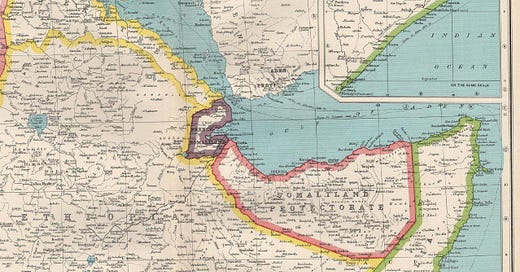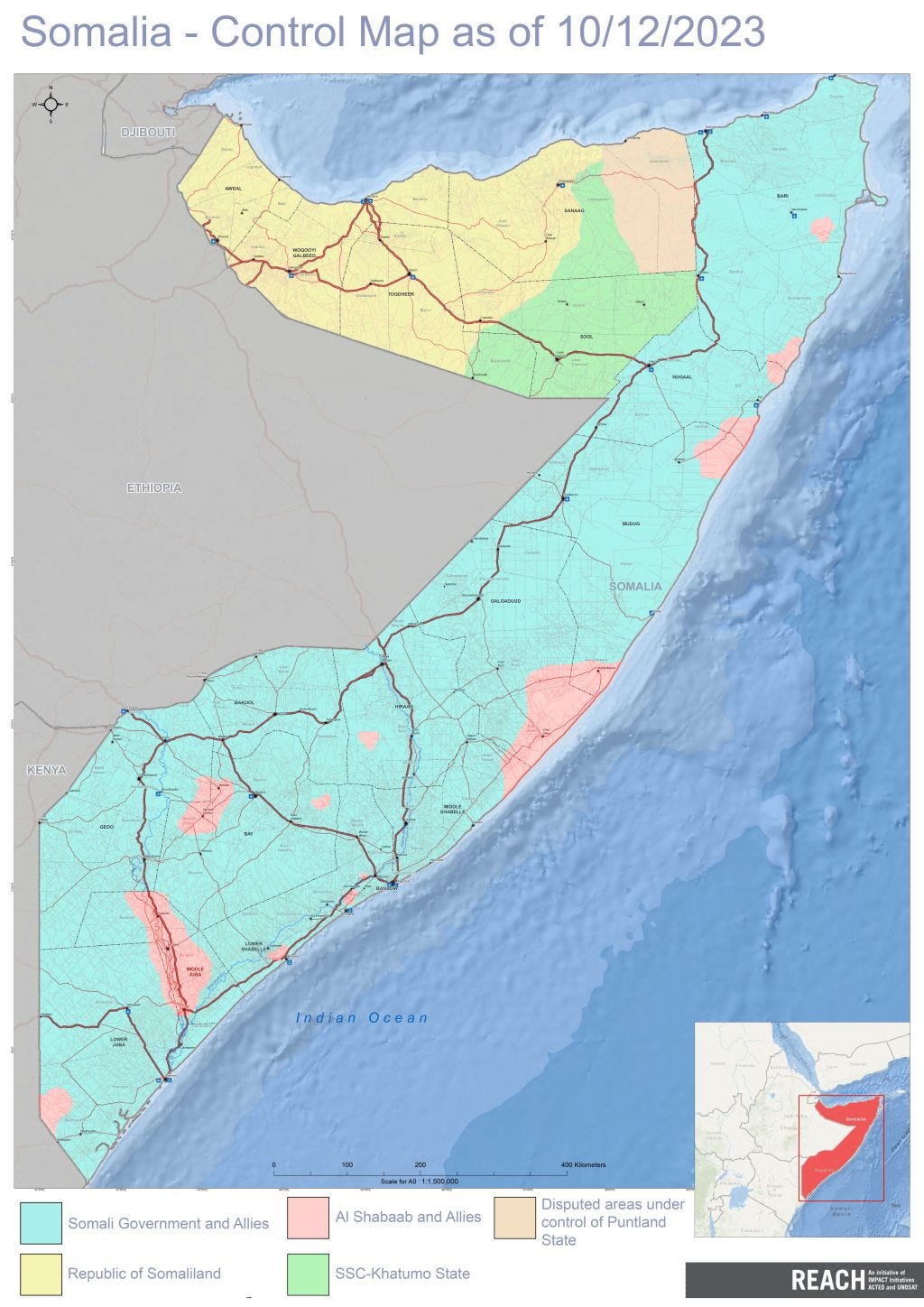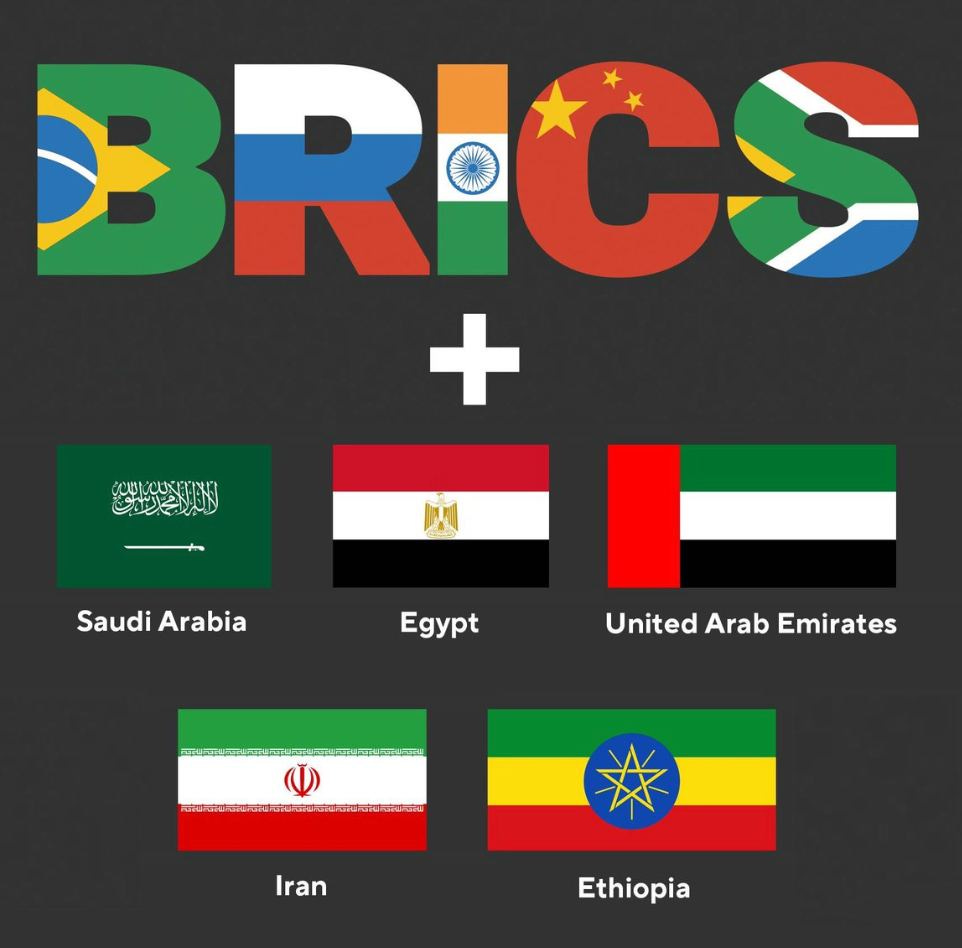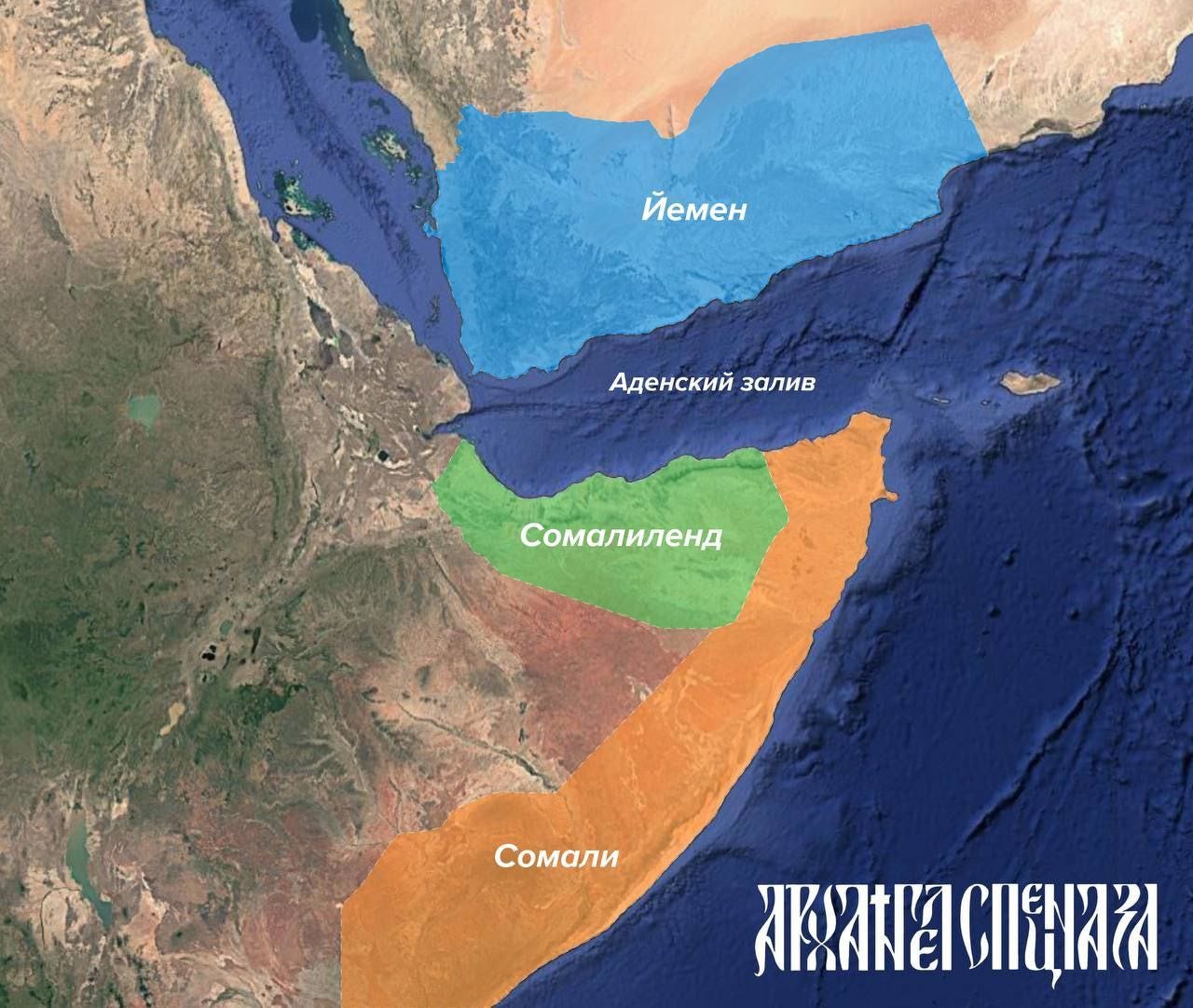Strange States: Somaliland
Landlocked Ethiopia attempts to recognize Somaliland as it joins BRICS
(Scroll down for news updates)
“Ethiopia is the first country to recognize Somaliland in exchange for a share in the port of Berbera, the creation of a naval base, ‘access to the Red Sea’ through 20 kilometers of coast leased to Ethiopia for 50 years and a significant share of Recognized Somaliland Airlines to Ethiopia.
Somaliland, with the official name of the Republic of Somaliland, is the name that the tribes of the five northern provinces of Somalia have given themselves since 1991 and separated from the country of Somalia. The capital of Somaliland is Hargeisa; until today, no country has recognized Somaliland, and Ethiopia finally rejected this spell; This region is recognized internationally only as an autonomous region of Somalia.
Muse Bihi Abdi, the President of Somaliland, a breakaway Republic in Somalia seeking state recognition, met with Prime Minister Abiy. They agreed to lend port access to the Red Sea for landlocked Ethiopia. This comes days after the President of Djibouti mediated an attempted reconciliation between the governments of Somaliland and Somalia in Mogadishu.” (telegraph.ph 12/30/23)
“Ethiopia yesterday recognized Somaliland's separation from Somalia and now considers Somaliland a separate sovereign state. In exchange for recognition from Ethiopia, Somaliland will provide access to the coast and allow the establishment of a military base there. This Djibouti deal cements Somalia's ongoing disintegration.
As has been said more than once, in the coming years we will observe the disappearance of some states, the emergence of other states, and the redrawing of borders. No paper contracts nowadays guarantee anything to anyone. Strength rules the show. The power to hold your boundaries or change them in your favor. Subject states will strive to take advantage of these circumstances, which will be relevant throughout the period of dismantling the old and forming a new world order.” (intel slava 1/3/24)
Ethiopia is officially part of the BRICS (Brazil, Russia, India, China and South Africa) group of emerging economies, following an invitation from the group last August, the Ethiopian government confirmed on Monday.
‘Today is a historic day as Ethiopia has officially joined the BRICS,” the Ethiopian Foreign Ministry said in a statement released through the social network X (formerly Twitter), welcoming its integration into “this important partnership platform.
Its membership recognizes the rich multilateral contribution of Ethiopia to promote international peace, security and prosperity; and the continued commitment and leadership of Ethiopia to South-South cooperation,’ it added.
The African country was invited to join BRICS during the group’s 15th Summit of Heads of State and Government, held in the South African city of Johannesburg on Aug. 22-24.” (eve.com 1/1/24)
“Somalia is prepared to go to war to stop Ethiopia recognising the breakaway territory of Somaliland and building a port there, a senior adviser to Somalia’s president has said. A memorandum of understanding signed on 1 January allowing landlocked Ethiopia to develop a naval base on Somaliland’s coast has rattled the Horn of Africa, one of the world’s most volatile regions.
Somalia claims Somaliland as part of its territory and has declared the deal void. Last Sunday its president, Hassan Sheikh Mohamud, called on Somalis to “prepare for the defence of our homeland”, while rallies have been held in Mogadishu, Somalia’s capital, against the agreement.
“We are pursuing all diplomatic options and I think Ethiopia will come to its senses, but we are ready for a war if Abiy wants a war,” said the adviser, referring to the Ethiopian prime minister, Abiy Ahmed.” (theguardian.com 1/13/24)
“The president of Somalia’s breakaway region of Somaliland has said his government will press ahead with an agreement signed earlier this month with landlocked Ethiopia to give it access to the sea by way of Somaliland’s coastline.
The deal has been condemned by regional and international groups, as well as Western countries, which say it interferes with Somalia’s territorial integrity and is causing tensions that could threaten stability in the Horn of Africa region.
Somalia has also protested the deal as a threat to its sovereignty by Somaliland, a region strategically located along the Gulf of Aden that broke away from Somalia in 1991 as the country collapsed into warlord-led conflict. Somaliland has not been internationally recognized.” (apnews.com 1/26/24)
“Somaliland firmly rejects Somalia's criticism of the Memorandum of Understanding (MoU) with Ethiopia, emphasizing that the agreement reflects a ‘sovereign decision’ between two independent nations. The statement, issued on February 11, 2024, underscores the foundational principles of the accord as ‘mutual respect’ and ‘aspirations for greater regional stability.’
On the same day, the government of Somalia called on the African Union (AU) and the United Nations to condemn the Memorandum of Understanding (MoU) signed between Ethiopia and ‘the self-proclaimed republic of Somaliland,’ branding it as ‘illegal" and a "clear violation of Somalia’s sovereignty, unity, and territorial integrity.’” (english.almayadeen.net 2/12/24)
“Somalia announced on Wednesday a defense deal with Turkey that includes support for the Horn of Africa nation’s sea assets and appears aimed at deterring Ethiopia’s efforts to secure access to the sea by way of the breakaway region of Somaliland.” (apnews.com 2/22/24)
“Somalia called the deal illegal as it considers Somaliland as part of its territory even though it has had effective autonomy since 1991. ‘Somalia will never accept (a) naval base ... Somalia is ready for commercial access in accordance with the international law of the sea,’ Somalia's state minister for foreign affairs Ali Omar told Reuters.
He added that Somalia was willing to discuss proposals so long as they meet the country's interests which are to ‘safeguard (our) sovereignty, political independence and unity’. (reuters.com 4/12/24)

"‘Somalia will never accept (a) naval base ... Somalia is ready for commercial access in accordance with the international law of the sea,’ Somalia's state minister for foreign affairs Ali Omar told Reuters.
He added that Somalia was willing to discuss proposals so long as they meet the country's interests which are to ‘safeguard (our) sovereignty, political independence and unity’.
‘Somalia will never accept Ethiopia's plan to build a naval base in its breakaway region of Somaliland, but it would consider granting Ethiopia commercial port access if discussed bilaterally,’ Somalia's state minister for foreign affairs said on Friday.
Landlocked Ethiopia sparked a diplomatic row with Mogadishu in January by signing a deal with Somaliland to lease 20 km (12 miles) of its coastline in return for recognizing the region as an independent state.” (reuters.com 4/16/24)
“Joe Biden's administration has been blamed for pushing a shock communique at the G7 which has potentially setback efforts to defeat Houthi terrorists trying to cut off one of the world's main shipping lanes in the Red Sea.
Sources have told Express.co.uk that the US delegation led by Secretary of State Antony Blinken pushed for a communique attacking a memorandum of understanding (MoU) between Somaliand, a former British protectorate, and Ethiopia.
The MoU backed the claims of ‘failed state’ Somalia to Somaliland even though Somaliland has been a successful indepedent democracy since 1991.
The strong wording of the G7 communique is a major blow for Somaliland after Foreign Secretary Lord Cameron and Defence Secretary Grant Shapps had hinted in recent months that the UK could recognise the African state which has enormous strategic value at the entrance to the Red Sea with its major port Berbera.” (express.co.uk 4/20/24).
“Ethiopian troops deployed in Somalia to combat the terrorist group al-Shabaab will be expelled by December if Addis Ababa fails to cancel a disputed port access deal with breakaway Somaliland, Reuters reported on Monday, citing Somali National Security Adviser Hussein Sheikh-Ali.
Thousands of Ethiopian National Defense Forces (ENDF) soldiers are currently stationed in Somalia, with some operating as part of the African Union Transition Mission (ATMIS) and others under bilateral security agreements.” (rt.com 6/4/24)
“Tempers remain high in the Horn of Africa seven months after a New Year's Day deal saw the self-declared republic of Somaliland agree to lease part of its coastline to its landlocked neighbour Ethiopia. Somalia is not happy about the maritime agreement, details of which remain murky.
Firstly, it believes the deal is unlawful and an ‘act of aggression’ as it considers Somaliland, which broke away from Somalia in 1991 at the start of a protracted civil war, to be part of its territory. It is also infuriated by reports that in return for use of a port, Ethiopia would become the first country to recognise Somaliland as a sovereign nation.
Both the African Union (AU) and the US have backed the territorial integrity of Somalia and urged all parties to cool tensions. Turkey has now intervened diplomatically - bringing Ethiopian and Somali delegates together for talks in its capital, Ankara.” (bbc.com 7/3/24)
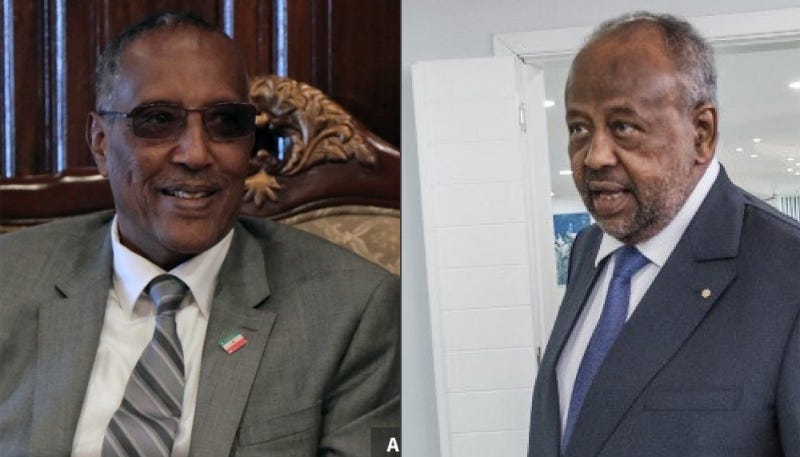
“The presidents of Djibouti and Somaliland have accused each other of destabilization. Djibouti is quietly training new republican guard recruits and denies any malice towards its neighbor, but is having trouble digesting the deal Somaliland signed with Ethiopia in January.” (africaintelligence.com 7/8/24)
“ Recognizing Somaliland would provide Israel with a strategic ally in the Horn of Africa, enhancing its national security and geopolitical position in the region. Somaliland’s strategic location on the Gulf of Aden, a critical maritime route, would allow Israel to establish a presence in a region where it has traditionally had limited influence. This would enable Israel to better navigate the complex geopolitical landscape and strengthen its security and economic interests.
The strategic partnership between Israel and Somaliland would also be crucial in countering regional threats, particularly from Iran and the Houthi rebels in Yemen. Somaliland’s proximity to Yemen makes it an ideal location for intelligence gathering and joint military operations aimed at countering these threats. By recognizing Somaliland, Israel would gain a valuable partner in the fight against terrorism and the proliferation of weapons in the region. This partnership would also allow for the sharing of intelligence and joint military exercises, enhancing the national security of both countries.” (blogs.timesofisrael.com 7/21/24)
‘“A lengthy document reportedly crafted by members and supporters of the US Republican Party ahead of the upcoming elections hints that if Donald Trump wins, Washington will grant official recognition to the breakaway territory of Somaliland.
Dubbed ‘Project 2025: Presidential Transition Project,’ the over 900-page document sets out a list of objectives to be accomplished over the presidential nominee’s first 100 days in the Oval Office. The document states the importance of ‘the recognition of Somaliland statehood as a hedge against the U.S.’s deteriorating position in Djibouti.’” (thereporterethiopia.com 7/27/24)
“Israel’s quest for strategic depth in the Horn of Africa through Somaliland: According to diplomatic sources, the UAE is mediating on Israel’s behalf for the establishment of a military base in Somaliland. There are numerous advantages for Israel in recognising Somaliland as an independent state. These include enhancing its national security, countering regional threats, creating new economic opportunities, improving diplomatic relations and supporting democratic governance in the region. In a region where many powers are competing for a share due to its strategic location and resources, Israel is expected to enter the race through local partner Somaliland, which is excluded by many countries.” (middleeastmonitor 10/15/24)
“The Trump administration is considering displacing Palestinians from Gaza as part of a broader US-led plan to ethnically cleanse the Strip. The report suggests that Morocco, Puntland, and Somaliland are being discussed as possible destinations for displaced Gazans.
The proposal appears to hinge on the strategic interests of these regions, as all three have incentives to strengthen ties with Washington according to the report. Somaliland and Puntland, two self-governing territories in the Horn of Africa, have long sought international recognition, while Morocco remains engaged in a territorial dispute over Western Sahara. Hosting Palestinian refugees could potentially bolster their standing with the US and Western allies.” (english.almayadeen.net 2/5/25)
”A US official briefed on Washington’s initial contacts with Somaliland’s presidency said discussions had begun about a possible deal to recognise the de facto state in return for the establishment of a military base near the port of Berbera on the Red Sea coast. The person, who described the contacts as ‘the beginnings of a conversation’, said Washington had raised the possibility of relocating refugees from the US and Gaza, although this was not the most important part of the talks.” (ft.com 3/14/25)
“The administration of US President Donald Trump is reportedly considering the partial recognition of Somaliland in exchange for permission to establish a naval base, according to the Financial Times.
An American official who told the FT about the new administration’s first contacts with the leadership of Somaliland shared that discussions have begun on a possible agreement to recognize the de facto state in exchange for creating a military base near the port of Berbera on the Red Sea coast.
According to the official, the Trump administration’s African team is still in the early stages of formation, and these ‘very preliminary, initial contacts’ are ongoing.” (mil.in.ua 3/16/25)
“The US, Israel, UAE, Ethiopia, Egypt and Turkey are increasingly turning Somalia into a military base, with the sole purpose of establishing a large fighting force, logistical infrastructure, beachhead and militia network against the Houthis.” (slavyangard.org 4/14/25)
“The UAE has deployed an advanced Israeli-made military radar system in Somalia’s semi-autonomous Puntland region to defend Bosaso Airport from potential Yemeni Armed Forces (YAF) drone or missile attacks, according to sources cited by Middle East Eye (MEE).” (thecradle.co 4/25/25)
“Even in the early days of 2024, it seemed that the first case of international recognition of Somaliland’s independence was just around the corner: on the 1st of January, the Memorandum of Understanding between Ethiopia and Somaliland was signed. According to this treaty, Addis Ababa intended to recognize its neighbor in exchange for the access to the sea. However, Hargeisa’s hopes failed. The intervention of Egypt and Eritrea on Somalia’s side, followed by Turkish mediation, coupled with internal problems, convinced the Ethiopian government led by Abiy Ahmed to abandon, at least temporarily, further implementation of the deal.” (journal-neo.su 6/7/25)

